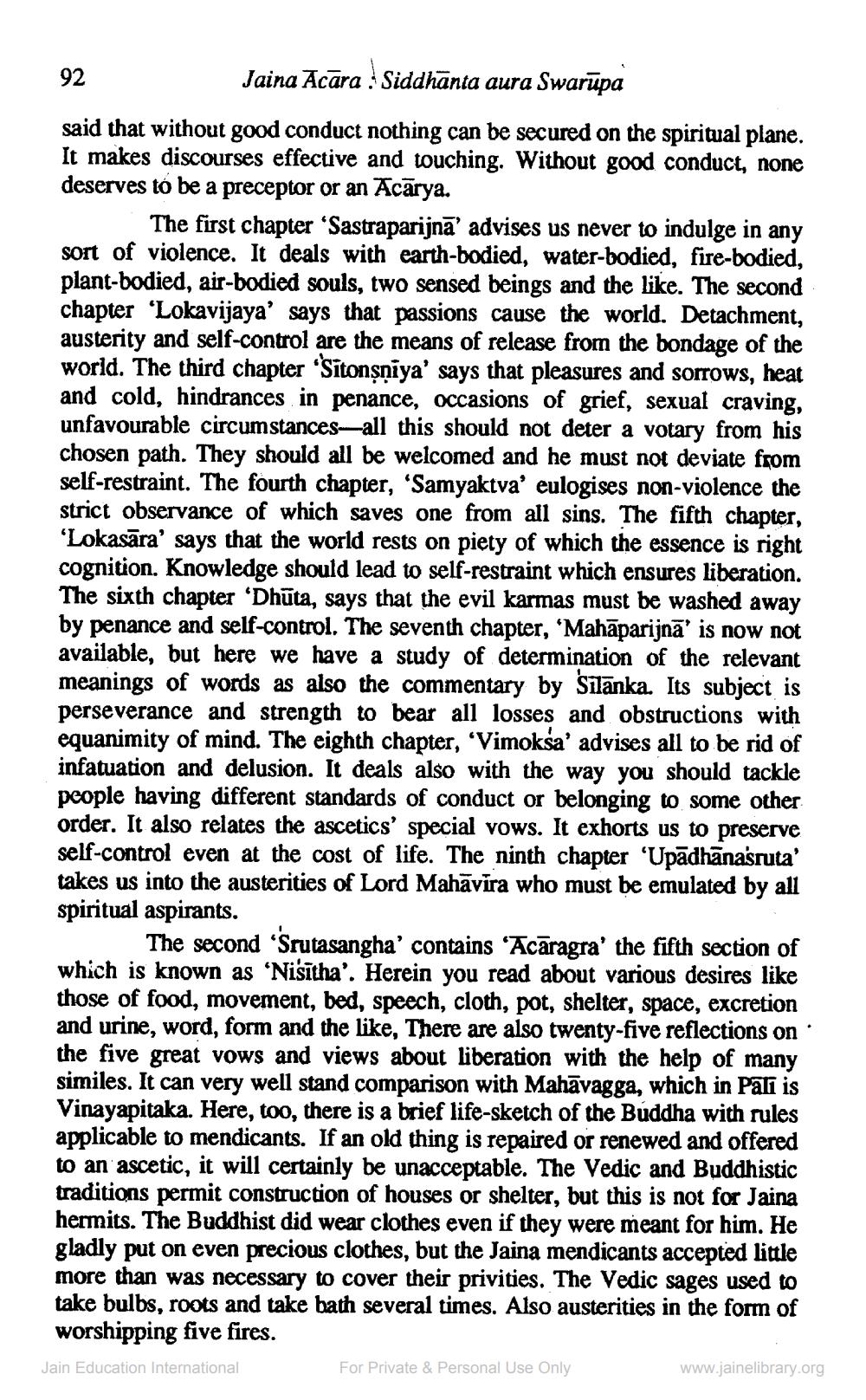________________
92
Jaina Acara. Siddhānta aura Swarūpa
said that without good conduct nothing can be secured on the spiritual plane. It makes discourses effective and touching. Without good conduct, none deserves to be a preceptor or an Acārya.
The first chapter 'Sastraparijnā' advises us never to indulge in any sort of violence. It deals with earth-bodied, water-bodied, fire-bodied, plant-bodied, air-bodied souls, two sensed beings and the like. The second chapter 'Lokavijaya' says that passions cause the world. Detachment, austerity and self-control are the means of release from the bondage of the world. The third chapter 'Sitonşniya' says that pleasures and sorrows, heat and cold, hindrances in penance, occasions of grief, sexual craving, unfavourable circumstances--all this should not deter a votary from his chosen path. They should all be welcomed and he must not deviate from self-restraint. The fourth chapter, 'Samyaktva' eulogises non-violence the strict observance of which saves one from all sins. The fifth chapter, 'Lokasāra' says that the world rests on piety of which the essence is right cognition. Knowledge should lead to self-restraint which ensures liberation.
The sixth chapter 'Dhūta, says that the evil karmas must be washed away by penance and self-control. The seventh chapter, 'Mahāparijnā' is now not available, but here we have a study of determination of the relevant meanings of words as also the commentary by Silānka. Its subject is perseverance and strength to bear all losses and obstructions with equanimity of mind. The eighth chapter, 'Vimoksa' advises all to be rid of infatuation and delusion. It deals also with the way you should tackle people having different standards of conduct or belonging to some other order. It also relates the ascetics' special vows. It exhorts us to preserve self-control even at the cost of life. The ninth chapter 'Upādhānasruta' takes us into the austerities of Lord Mahāvīra who must be emulated by all spiritual aspirants.
The second 'Srutasangha' contains 'Acaragra' the fifth section of which is known as 'Nišitha'. Herein you read about various desires like those of food, movement, bed, speech, cloth, pot, shelter, space, excretion and urine, word, form and the like, There are also twenty-five reflections on the five great vows and views about liberation with the help of many similes. It can very well stand comparison with Mahāvagga, which in Pali is Vinayapitaka. Here, too, there is a brief life-sketch of the Buddha with rules applicable to mendicants. If an old thing is repaired or renewed and offered to an ascetic, it will certainly be unacceptable. The Vedic and Buddhistic traditions permit construction of houses or shelter, but this is not for Jaina hermits. The Buddhist did wear clothes even if they were meant for him. He gladly put on even precious clothes, but the Jaina mendicants accepted little more than was necessary to cover their privities. The Vedic sages used to take bulbs, roots and take bath several times. Also austerities in the form of worshipping five fires. Jain Education International For Private & Personal Use Only
www.jainelibrary.org




